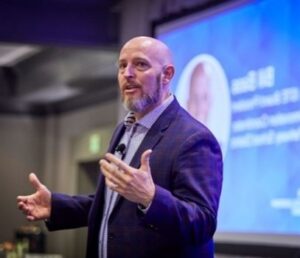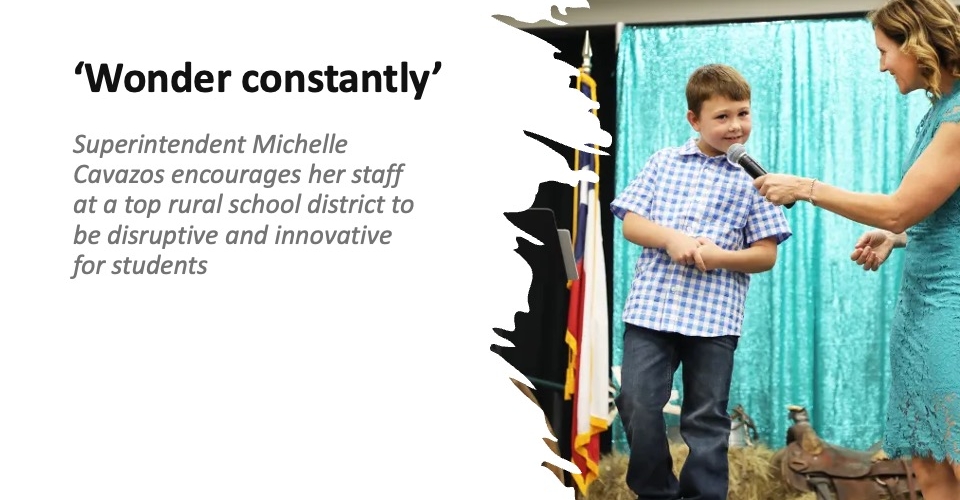In today’s rapidly evolving educational landscape, K-12 leaders face a myriad of challenges, from integrating cutting-edge technology to addressing diverse student needs, the obstacles can be daunting. One powerful avenue for overcoming these hurdles is through professional development conferences like the Future of Education Technology Conference (FETC). By connecting with peers and sharing best practices, district leaders can foster innovative leadership strategies that enhance teaching and learning in the digital age.
National conferences offer a platform where educators from various districts converge to exchange ideas and solutions. These gatherings are not just about attending sessions; they provide opportunities for presenting, networking, and professional growth. Below, we explore the personal and professional benefits of speaking at national conferences, as highlighted by experienced educators and speakers at FETC. Here’s why administrators should seize the opportunity to speak at national conferences, and the significant benefits they stand to gain.
1. Professional Growth and Confidence

Presenting at a national conference pushes educators to dive deep into their chosen topics, enhancing their expertise and confidence. Rick Surrency, Superintendent of Putnam County School District, notes, “My experience of presenting at a national conference has been one of professional growth. By taking the time to research my topic extensively, I have built personal confidence to share my perceptions to a variety of audiences from around the nation.” This process of preparation and presentation deepens understanding and builds confidence in educators, enhancing their ability to lead effectively.
2. Enhanced Networking Opportunities

Julia Fallon, Executive Director of SETDA, notes the invaluable networking opportunities: “Taking the time out of your busy schedule to present at a national conference offers invaluable personal and professional benefits. It provides a unique opportunity to network with peers, share insights, and gain fresh perspectives.” These interactions can lead to collaborations that extend beyond the conference, fostering a professional learning community that supports ongoing development.
3. Collective Problem-Solving

Dr. Mary Hemphill, CEO of The Limitless Leader, emphasizes the collaborative aspect: “Presenting at a national conference is a tremendous opportunity to build a table for educators from across the country to share and discuss shared challenges in edtech. It’s inspiring and confirming to see collective voices and experiences come together to create common solutions for the way we learn and lead.” She highlights the power of collaborative problem-solving: “Presenting at a national conference is like being at the helm of a collaborative think tank – where innovative ideas and practical solutions come together to drive meaningful change in education.” These collaborative efforts can result in actionable strategies that address common challenges faced by districts.”
4. Contributing to Educational Excellence

Dr. Mike Gaskell, Principal of Central Elementary School, sees presenting as a way to contribute to broader educational goals: “Presenting at a national conference enables me to learn even more, because it requires me to organize my thoughts, identify gaps in my knowledge, and find ways to explain concepts clearly. It’s also a powerful way to deepen my own understanding!” Presenting at national conferences like FETC can transform your career, rejuvenate your passion, and contribute to the collective advancement of education. Enhanced teaching and learning is a direct output of conferences.
- Reigniting Passion for Education

Presenting can reignite an educator’s passion and enthusiasm for their profession. Ainsley Hill, Instructional Technology Facilitator at Arlington Community Schools, shares, “Engaging with professionals from diverse backgrounds is an enriching experience that fosters personal and professional growth, empowering you to reach new heights you didn’t think were possible.” The excitement and energy from these events can reignite an educator’s passion for their work.
- Enhancing Credibility and Visibility

For Glenn Robbins, Superintendent of Brigantine Public Schools, the visibility and credibility gained are key benefits: “Presenting at a national conference significantly enhances professional visibility and credibility while providing valuable networking opportunities.” Sharing innovative ideas and best practices at such events helps educators gain recognition and establish themselves as thought leaders in the field.
- Showcasing Innovative Ideas

Erika Sandstrom, Digital Learning Coach at Peabody Public Schools, discusses the direct impact of sharing innovative ideas on teaching: “Presenting at a national conference allows you to showcase your work, gain feedback, and collaborate on future projects. Personally, I am a better teacher from the connections I’ve made.” These experiences lead to improved teaching practices and better student outcomes from learning new innovative strategies and approaches to methodologies at conferences. The goal of FETC speakers is to share innovative ideas that can be immediately integrated into classrooms.
- Lifelong Learning

Bill Bass, Innovation Coordinator at Parkway School District, highlights the continuous learning aspect: “Every time I present, I learn more about myself and how I feel about the topic at hand which helps me to better shape my own thinking and ideas and bring them to my own work.” This continuous learning process helps educators stay current with trends and best practices, ensuring they can adapt to the ever-changing educational landscape.
- Influencing Peers and Driving Change

Heather Brantley, an educator and consultant, Pine Tree ISD, emphasizes the broader impact: “Presenting at a national conference gives a safe place to connect classrooms around the world to make a positive global impact.” By sharing their successes and challenges, educators can influence practices beyond their immediate environment, contributing to a global educational community. Speakers at conferences have a broader impact for sharing solutions.
- Staying at the Forefront of Innovation

“Presenting at FETC over the past decade has been an immensely rewarding experience both personally and professionally. It has provided a unique platform to share insights, network with incredible educators, and stay at the forefront of educational innovation.” – Thomas C. Murray, Director of Innovation, Future Ready Schools

“As an educator, presenting at a national conference offers the invaluable opportunity to network with industry professionals, gain insights into the latest trends, and refine teaching strategies. It’s a chance to learn from peers, share knowledge, and elevate your professional growth, even amidst a busy schedule.” Christopher Turner, Director, Mixed Reality Virtual Innovation Gaming and Esports Institute, Southern University Law Center
As the landscape of K12 education faces unprecedented challenges, from integrating technology to addressing diverse student needs, collaboration and sharing best practices have never been more critical. Connecting with other district leaders at professional development conferences like FETC is more than just an opportunity to learn; it’s a chance to contribute to the advancement of K-12 education. By presenting at these conferences, educators can enhance their professional growth, network with peers, and drive meaningful change in their districts. The collective power of shared knowledge and experiences can transform the educational landscape, ensuring that students receive the best possible education in the digital age.
Attending and presenting at national conferences like FETC provides K-12 leaders with unparalleled opportunities for growth, networking, and collaboration. By sharing insights and learning from peers, educators can develop innovative solutions that address the complex challenges faced by districts today. Encouraging educational leaders to apply to speak at these events not only enhances their personal and professional development but also contributes to the advancement of education as a whole.
Professional development conferences like the Future of Education Technology Conference (FETC) provide an invaluable platform for district leaders to connect, learn, and innovate together. By sharing successful strategies and leadership insights, these events can lead to tangible improvements in education. For those passionate about making a difference, consider applying to speak at a FETC 2025 by applying online at www.fetc.org by June 2. 2024. Your insights could be the key to unlocking new solutions and innovations in K-12 education.









